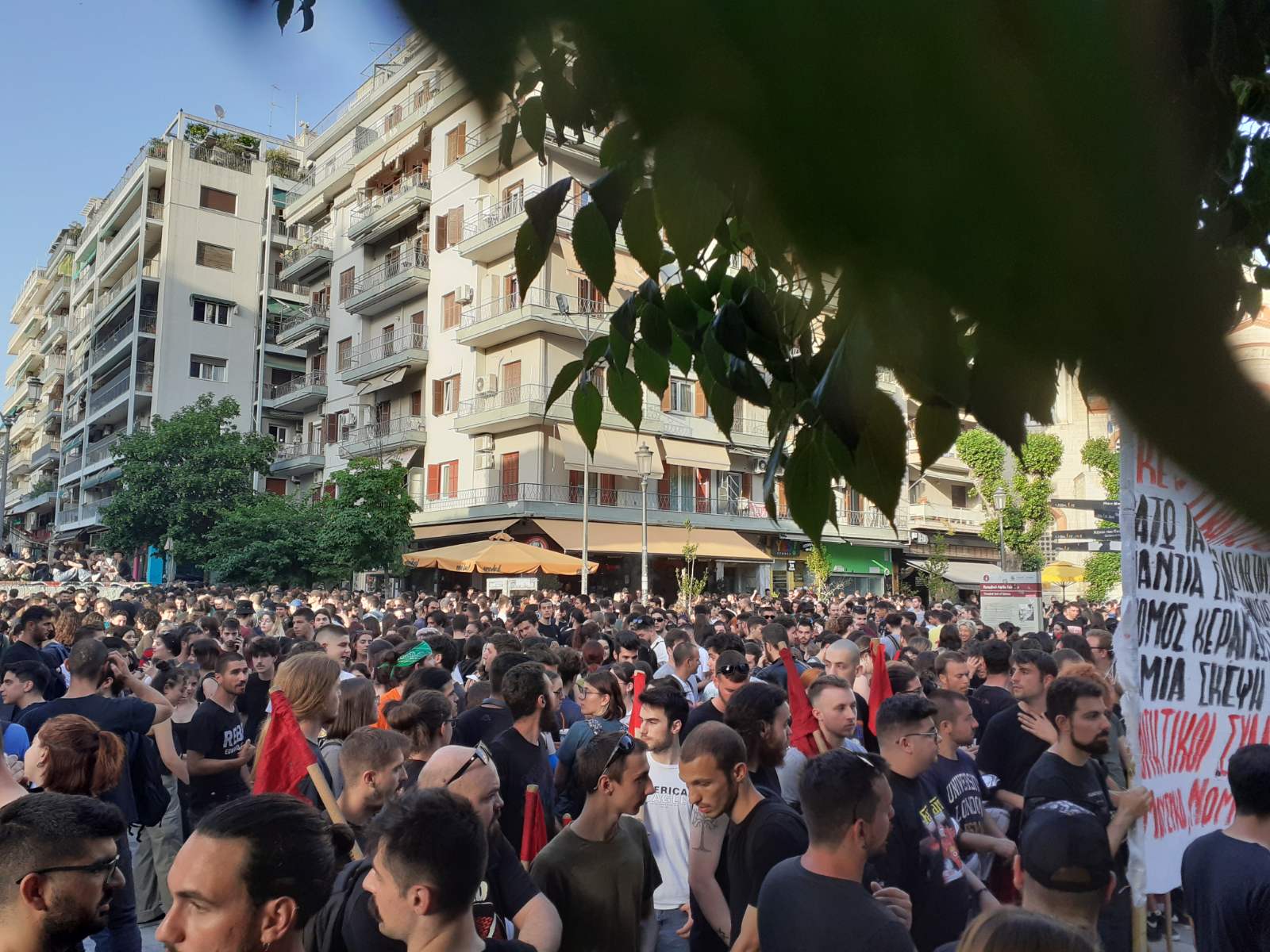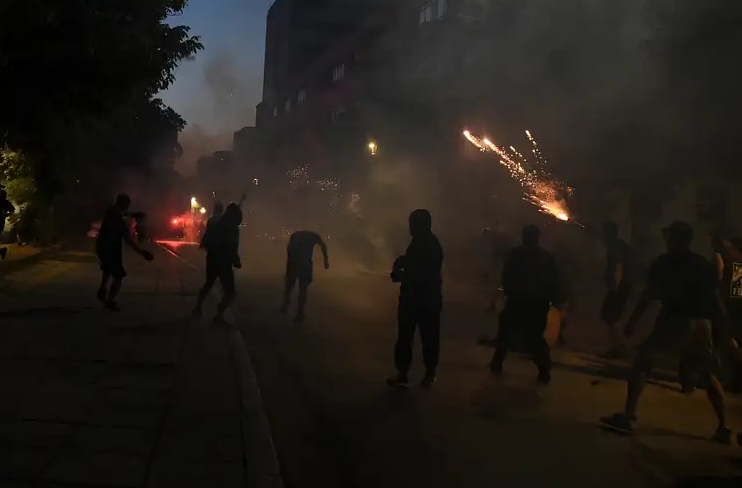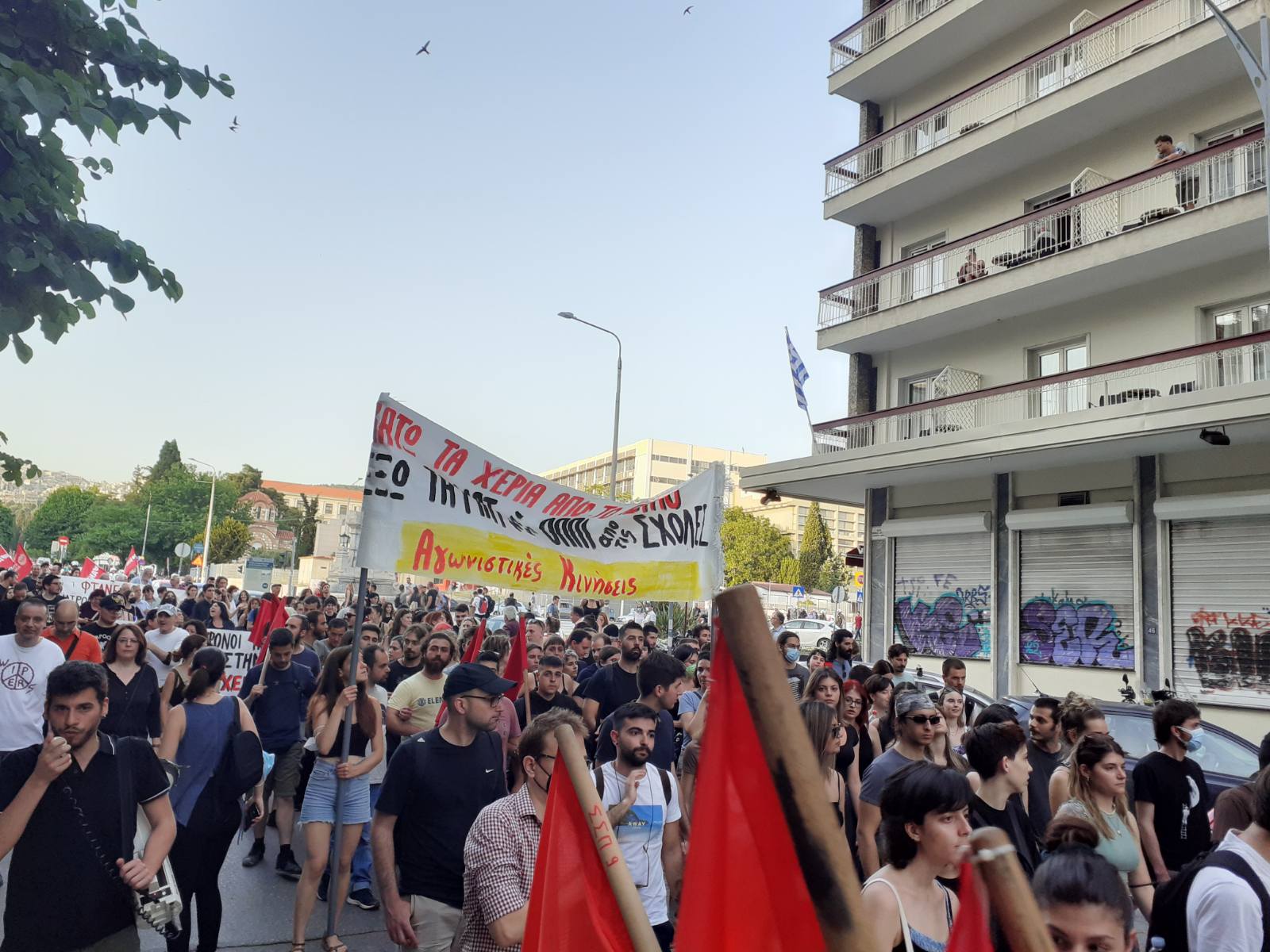Students in Greece have been fighting for over a year against a law passed by the reactionary government to station cops on university campuses. The law states that up to 1000 guards may be deployed on university campuses. These guards are to be directly subordinated to the police.
In Greece, the presence of police officers at universities has been banned since the early 1980s. The reason for this is the military dictatorship in Greece. In 1973, students protesting against the military dictatorship were brutally murdered by police and military at the Athens Polytechnic University. In 1982, the police were then barred from entering the universities, which was called university asylum. Since then, university asylum has been considered sacrosanct in Greece.

Against this attack on the universities, thousands have been taking to the streets again and again for over a year to protest against the reactionary law, including massive fights with the police. The movement is particularly strong in Thessaloniki in the north of the country. Here, almost 5000 people took to the streets again last Thursday (26 May). Shop windows were smashed and objects set on fire. After the demonstration, there were massive fights with the cops in the side streets of the city centre, with Molotov cocktails, Bengalos, flares and stones thrown at the police. 8 people were reportedly arrested and there was one seriously injured student who was hit in the head by a tear gas grenade.

There are also repeated direct fights on the campus of Aristotle University in Thessaloniki. Here, students have been occupying a building for weeks, where a new library is supposedly to be created. The construction site is being monitored by police forces. This surveillance is mainly to normalise their presence on the campus, preparing for the enforcement of the reactionary law.
The law is justified by the reactionary government on the grounds of fighting crime, robbery and damage to property. A pathetic pretext. What the government is mainly concerned with is fighting the progressive student movement in Greece, because there are many ideas in the universities that do not serve this system. The students are a thorn in the government's side. For them, it is criminal when students discuss, politicise, organise, take to the streets and fight. The government, like its predecessors, is trying to silence any progressive political voice in the universities and prevent students from raising their heads. The students are supposed to accept the dark future that this system has to offer them. However, the reactionary Greek government's plan has not worked so far and will not. The recent struggles are repeated proof of this.

